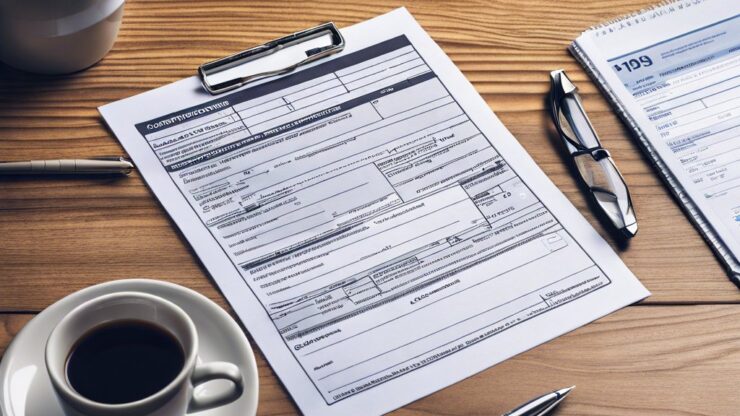Understanding the Importance of Form 1099
Form 1099 serves as a critical document for businesses and freelancers alike, ensuring that all non-employee compensation is reported accurately to the IRS. This form is particularly significant for independent contractors, freelancers, and any entity that has received payments for services rendered outside of a traditional employer-employee relationship. Its proper filing not only aids in tax compliance but also provides a clear record of income for the recipient.
As we delve deeper into the specifics of Form 1099, it becomes essential to understand the implications of failing to file this form correctly. Errors can lead to penalties, increased scrutiny from tax authorities, and complications during tax season for both payors and payees.
Navigating the Requirements for Filing Form 1099
Filing Form 1099 is not merely a bureaucratic task; it is a responsibility that carries significant implications for tax reporting. The IRS mandates that businesses report any non-employee compensation totaling $600 or more paid during the tax year. Understanding who qualifies as a non-employee and what types of payments are reportable is essential for compliance.
Below is a comprehensive overview of the critical steps involved in filing Form 1099:
- Identify Eligible Recipients: Determine which individuals or entities received payments exceeding the $600 threshold.
- Gather Necessary Information: Collect the Tax Identification Numbers (TIN) and other relevant details from recipients, typically via Form W-9.
- Complete the Form: Accurately fill out Form 1099, ensuring all information reflects the correct amounts and details.
- Distribute Copies: Provide copies to recipients by the IRS deadline, which is usually January 31st of the following year.
- File with the IRS: Submit your completed Form 1099 to the IRS by the appropriate due date, which may vary depending on whether you file electronically or via paper.
The Consequences of Non-Compliance
Failure to file Form 1099 correctly can lead to various repercussions, including hefty penalties. The IRS imposes fines that increase with the duration of delay in filing. Moreover, payees who do not receive their Form 1099 may struggle to accurately report their income, leading to potential audits and additional penalties.
In conclusion, understanding the intricacies of Form 1099 and its role in reporting non-employee compensation is vital for both businesses and independent contractors. By adhering to the filing requirements and deadlines, you can ensure compliance and foster a transparent financial relationship.
Disclaimer
This article has been created or edited with the support of artificial intelligence and is for informational purposes only. The information provided should not be considered investment advice. Please seek the support of a professional advisor before making any investment decisions.






